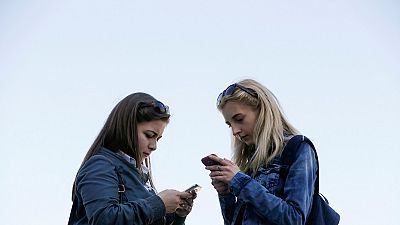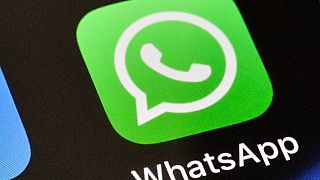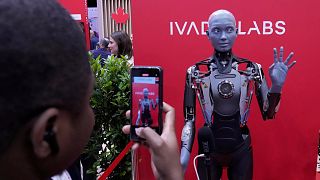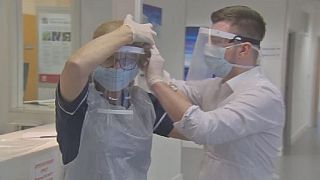Smartphone
Smartphones and tablets are powerful tools of information and communication, and for most people, an essential device.
But too much usage could make you go blind.
Using these products while lying in bed has been identified as causing temporary vision loss and can affect sleep.
While this may not be rooted in everyone’s behaviour, it is a common problem for some users.
“I sleep late and I’ve found difficulty getting up in the morning and because of the light I can’t fall asleep on time. I think blue light interferes with your sleeping pattern and that’s why”, says Adeeb Arif, a smartphone user.
More than two billion people worldwide use a smartphone. The average individual usage is estimated to be between four to five hours per day.
Marcela Montes worres about the effect her smartphone has on her
“For my eyes I will worry because sometimes at night when I use (my smartphone) before I sleep, when I close the cellphone and put it off, I can feel like in my eyes (there are) some black points sometimes.”
The New England Journal of Medicine, has reported the separate cases of two women who experienced “temporary blindness” for months.
Although we look at screens with both eyes, many use smartphones while lying down, where one eye can inadvertently be covered or out of focus.
Dr. Gordon Plant, a consultant neurologist at the National Hospital of Neurology says, “It will take several minutes before the right eye can see as well as the left eye, the opposite is true of course if they’re lying on their right side. So what worries them is that they think the problem is that they can’t see with the eye that’s been exposed to the light and if they’d been viewing the phone with both eyes, both eyes would be the same and they wouldn’t think anything of it.”
After the women had been complaining of bouts of temporary vision loss they underwent various medical investigations, including MRI scans and heart tests.
At first no cause could be found
Dr. Gordon Plant warns, symptoms of temporary smartphone blindness are very similar to serious problems such as stroke and can result in misdiagnoses.
“A few years ago these patients would be referred first to specialist clinics, but now because of the stroke pathways and hyperacute treatment of stroke they’ll be referred automatically to a stroke unit where they’re seen by stroke physicians who aren’t necessarily au fait with ophthalmic disorders, and they’ll just be processed automatically, have MRIs and CTs and ultrasounds and all the rest of it”
So watching small screens may harm your vision, and affect your sleep.
Taking a break every 20 minutes or reading a book in bed is one way of preventing that.
Euronews














01:35
Mobile networks attracting more smartphone users as Ghana tries to close digital gap
01:00
DR Congo: M23 rebel group claims control of Rubaya, a key mining town
02:20
Welket Bungué’s ‘Cacheu Cuntum’ Honours the History of Guinea-Bissau
04:46
Rwanda uses technology to power 'Made in Africa' ambitions [SciTech]
02:31
Nigerian teens make sci-fi films with smartphones
Go to video
South Korea to launch world's first 5G networks